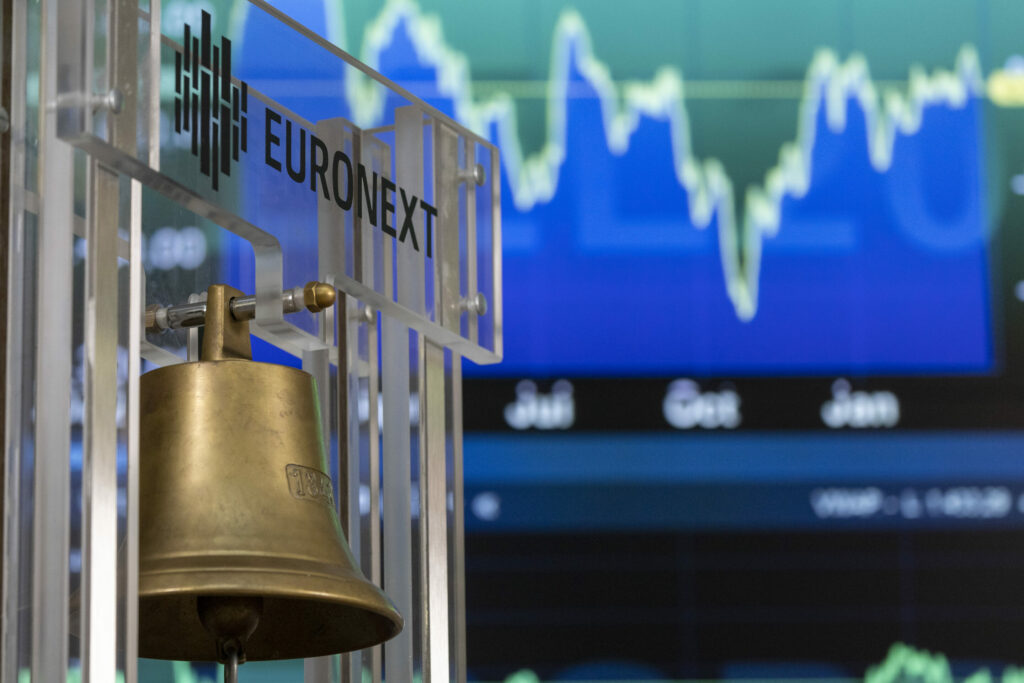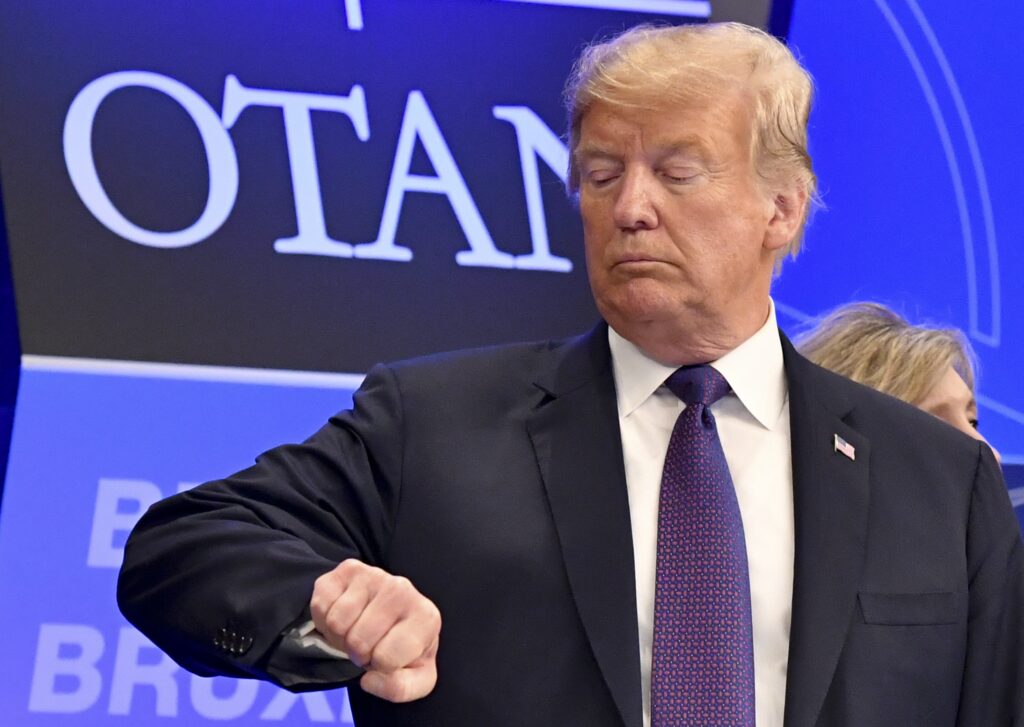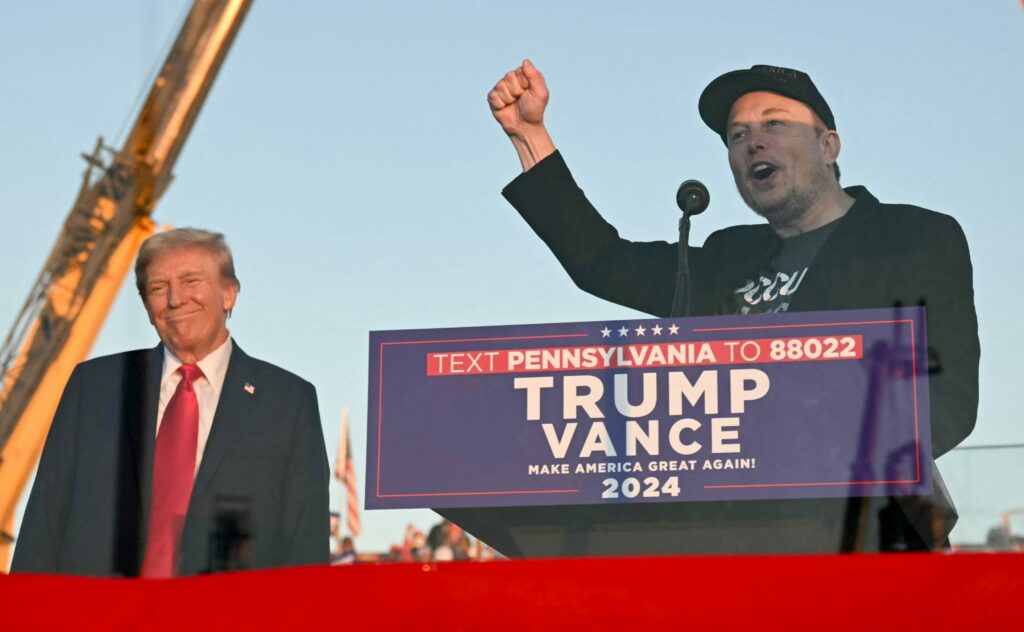With Donald Trump becoming the US President for the second time and potentially shaking up the global economic status quo, businesses in Belgium are urging the European Union to take decisive action to ride the wave of the coming four years.
Business leaders in Brussels and Belgium are preparing for an uncertain economic period, as Trump's Presidency will pose numerous challenges but also offer several opportunities – if the country acts fast enough to seize them.
"Trump's re-election really should serve as a wake-up call for Europe. The EU should act fast, but that is not something that they have historically been very strong on," Wouter Van Gulck, the Belgian Chambers' General Manager, told The Brussels Times.
There are certain things that Europe should do to arm itself against the expected volatility under Trump. "We should work on the internal markets: what we lose in the US through import duties, we could easily regain by going deeper into the internal market. In the last couple of years, we created more barriers internally than there were before."
A European Musk
Secondly, the EU needs an Industrial Deal. "We had a Green Deal. You can be pro or contra, but it is here and it will not go away," Van Gulck stressed. "But maybe we could soften some rules, because we need an industrial deal for our companies to become more competitive. That is what we need against US companies."
"Thirdly, we need a European Musk," he said. "For the government efficiency, for better regulation, not for all the rest. Musk will be heading the Department of Government Efficiency in the US, and that is what we need as well. There has been a lot of talk, but very little has been done in practice. For companies, especially SMEs, it has become very hard to comply with all the different EU regulations."
"This way, Trump's re-election can hopefully have a positive impact and create a wake-up call for the EU," Van Gulck stressed.

Stock exchange. Credit: Belga/Nicolas Maeterlinck
While the effect that Trump's presidency will have on Belgian and European markets is difficult to predict, René Branders, the President of the Federation of Belgian Chambers of Commerce, has several concerns. But much will depend on the value of the dollar.
"Should the dollar rise, that would be good for us in terms of export. On the other hand, it will cause indirect inflation through customers and markets abroad that also depend on the value of the dollar," he told The Brussels Times.
However, a weak dollar would present its own problems, Branders believes. "In a period where we are looking towards a relaunch of the European economy, a weak dollar would be a big issue for the export markets. But we do not know what will happen. It is a big question mark."
No man's land
"A second concern is trade barriers in place with the US markets. The current trade agreement that was in place under President Biden will end in March and will not be renewed," he said. "America does not produce that much itself, it is an economy of service. But we sell a lot to the US."
Branders underlined that the recent EU-Mercosur trade agreement "will certainly help" the EU's position, the tariffs on imports that Trump has pledged to impose mean that "we will still be entering no man's land" soon.
Thirdly, digitalisation is a major concern going forward. "Especially with the position of Musk, we do not know what will happen with the flow of data. While Europe is not the biggest developer of data products, we still use it a lot: Artificial Intelligence in healthcare developments, for example."
"Should we still, I hope, have access to those technologies, I hope that will not be on the worst possible conditions," Branders said. "That would quite seriously jeopardise the development of the digitalisation that is running ahead here in Europe."
Still, he stressed that nobody knows what exactly will happen with Trump as US President again, as the world has changed drastically since he won the elections for the first time in 2016.

US President Donald Trump in 2018. Credit: Belga / Geert Vanden Wijngaert
The good news, Branders said, is that this is Trump's second – and therefore last – mandate. "Unless he finds a way to change or circumvent the law, like Xi Jinping, like Victor Orbán, like Putin, to continue his mandate after this, we will just have to cross this wave of four years," Branders said.
However, he acknowledged that these four years will also be rife with very high geopolitical tension. "If we cannot sell to the westbound side, and we go to the eastbound – where we now have geopolitical tensions – then Europe is positioned very badly, geographically speaking."
Branders stressed how the European automotive sector was doing well in 2016, while the Chinese are now taking over the market with the electrification of cars. He underlined that it would be in the EU's best interest to act very fast – something it historically has not been good at.
"We also have a new European Commission now, which was not the case when Trump was around for the first time. There are big challenges ahead," he said. "There are many pieces to connect. I see it like a Rubik's Cube: you need to put all the pieces together to find the solution, but it requires skills to understand from which point you need to start."
What about Belgium?
It is not all doom and gloom: there are quite a few opportunities to be found for Belgium. With the Port of Antwerp being the fifth biggest harbour in the world, the country is "a crossroads of interconnection" for the rest of the world.
Additionally, Belgium is a diplomacy hub: over 2,000 bilateral or multilateral representatives on diplomacy are located in Brussels – putting it ahead of even Washington DC. "We are at the top of the world on this. If you see how many deals Belgium closed when it held the EU Presidency, I believe in the people on the field and their skills of being mediators."
Importantly, it is "critical" that Belgium forms a Federal Government quickly. "The sense of emergency is definitely there. We need stability, we need to show that this country is manageable, we need to start launching new projects. We also absolutely need an ambassador in the US."
For Thierry Geerts, the chief executive of BECI (Brussels Enterprises Commerce and Industry, the most important thing is not to wait for Trump to act, but to build more self-assurance in Europe and Brussels.

Then-Minister of Cooperation Development, Digital Agenda, Telecom and Postal services Alexander De Croo in 2017. Credit: Belga/Benoit Doppagne
"We are very dependent on the US for our defence, but also for the economy," Geerts told The Brussels Times. "We need to build a strong economy and a strong industry. That requires some actions from the European Commission, obviously, but it is also an attitude: we do not have to be too afraid of the future."
Brussels should believe in its own strength and develop what it is good at, such as AI in the healthcare industry, while also investing more in defence and cyber defence. "This is an opportunity for the economy. We have many companies in those areas, and they will have more work than ever before."
Geerts stressed that predicting the effect of Trump in the current globalised economy is nearly impossible. "The geopolitics are definitely influencing the economy, and it is hard to see where we will end up. So the best thing is to build a resilient ecosystem and resilient companies that will be very prepared. Let's not be afraid of Trump. That is what he's looking for, so let's do the opposite."

